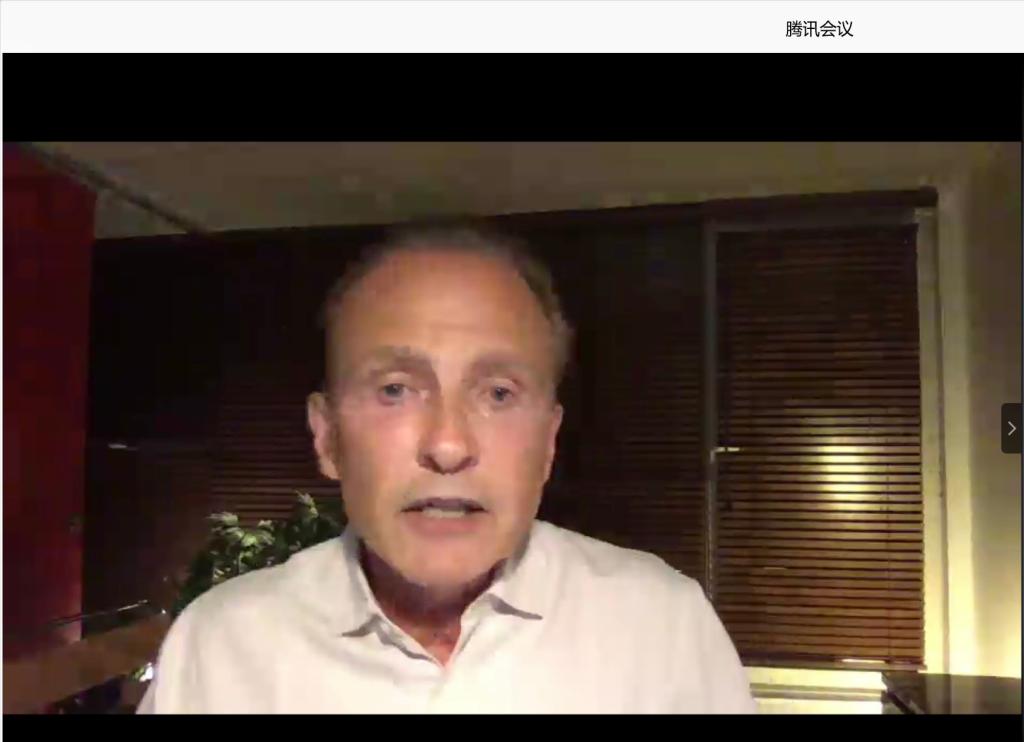John Zacharias: Hope and Kindness

Today I just want to talk a little bit about these two words. And the first word is hope. I never imagined that I would be talking about hope, this year, in particular. But I’ve heard the word “hope” a lot these last few days and it made me wonder. I actually went to look at some meanings of hope including in Chinese, (and) try to understand how we have used this word--- hope. You know, coming from a planning profession, well, one of the planning professions, what do we have? Well, we have a belief that things will be better. It's not that they could be better because you know lots of people can contain things can be better, but we will believe firmly that they will be better---that's actually our role, so I can understand why we might be hopeful under the circumstances.
Another thing I was thinking today my relation to hope is that when I graduate from my master’s degree--- urban planning at the University of British Columbia, well, the world was going to another kind of crisis which was the first oil crisis, so the world went into economic recession and job prospects looked mighty poor. In the planning fields, however, we were optimistic. We believed that this was the turning point that we were finally going to get on the road of sustainability. We believe that. And we were wrong or we were delayed in our thinking. So I like to think that we were delayed, we were delayed by a lot of things that happened in between. But there's no reason why we shouldn’t be hopeful today. I think we have an even greater opportunity today to get this right and we’d better get it right. So it's been a long time, it is now your graduation and you're in the midst of another kind of crisis here. But you have every reason to be hopeful about the future because in this hope there's also this meaning of will: will is part of hope .
The second word I had in mind, and it's been actually going through my mind a lot, is kindness. Now I think you know you can't be hopeful and not be kind. You have to think about to whom you want to do good things and for what reason, so kindness has to accompany hope, I think particularly in context that really begin now and you know I'm surrounded by people who have a lot less than they had a year ago. And that's true in China and it’s true around the world. There’s lot of people we need to be kind to. And think about privileges we have, and I wouldn’t presume any of your situations and what you face now. That's something I really don't know, but I do know that in Peking University we enjoy a lot of privileges. And I am very mindful of that privilege and it brings a kind of humility in the context of the crisis.
I wanted to just give those kinds of hopeful words because that's actually how I feel these days and I won't be longer than that. So those are my two words, hope and kindness.
今天,我只想谈谈这两个词。第一个词是“希望”,我从未想过我会在谈论希望,特别是今年。但是最近几天我时常听到“希望”这个词,这让我想去了解希望的含义,包括它在中文中的含义,去尝试了解我们如何使用这个词。在规划行业的我们,至少是规划行业中起重工一个另有,我们拥有什么?我们有一个信念,坚信事情会变得更好,而不是事情可能会变得更好,因为你们知道很多人认为事情可能变得更好。但我们不同,我们坚信一切会更好,因此,我可以理解为什么在现在这种情况下我们会充满希望。
今天我在想的另一件事与我希望有关的事,那就是当我从不列颠哥伦比亚大学的城市规划专业毕业时,世界正在经历另一种危机,第一次石油危机。世界由此陷入了经济衰退。工作前景似乎很差,但是在规划领域的我们很乐观,认为世界终于迎来了转折点,从此就会踏上可持续的道路。但我们错了,或者可以说我们的思维被“耽搁”了,被中间发生的很多事情耽搁了。但是,今天我们没有理由不充满希望。我认为,今天我们有更多的机会让事情好转,我们最好能让一切好转起来。距离我毕业已经过去很长时间了,今天你们毕业了,而你们正处于另一种危机之中。你们完全有理由对未来充满希望,因为希望中不乏意志的体现,而意志是希望的一部分。
我想到的第二个词是善良,实际上这个词已经在我的脑海中回荡了很久。我想你们知道:不善良,便无真正的希望。你们必须考虑要向谁做善事以及出于何种原因。希望必须由善良相伴,尤其是在当下的这种情景:你们知道,我身边有很多人他们心中的善意比一年之前减少了很多。在中国如此,全世界亦如此。考虑一下我们拥有的特权,我不会去猜想你们每个人的生活状况以及你们现在所面临的事情,那些都是不为我所知的,但是我确实知道,在北大,我们确实享有很多特权。而我对这种特权非常小心,事实上它让我更加强烈地感受到了谦卑。
今天我想说的就是这些饱含希望的话,也是我最近的感受。这就是我今天想给你们的两个词:希望和善意。
(整理/黄可青 校对/刘钿 编辑/朱亮亮)

